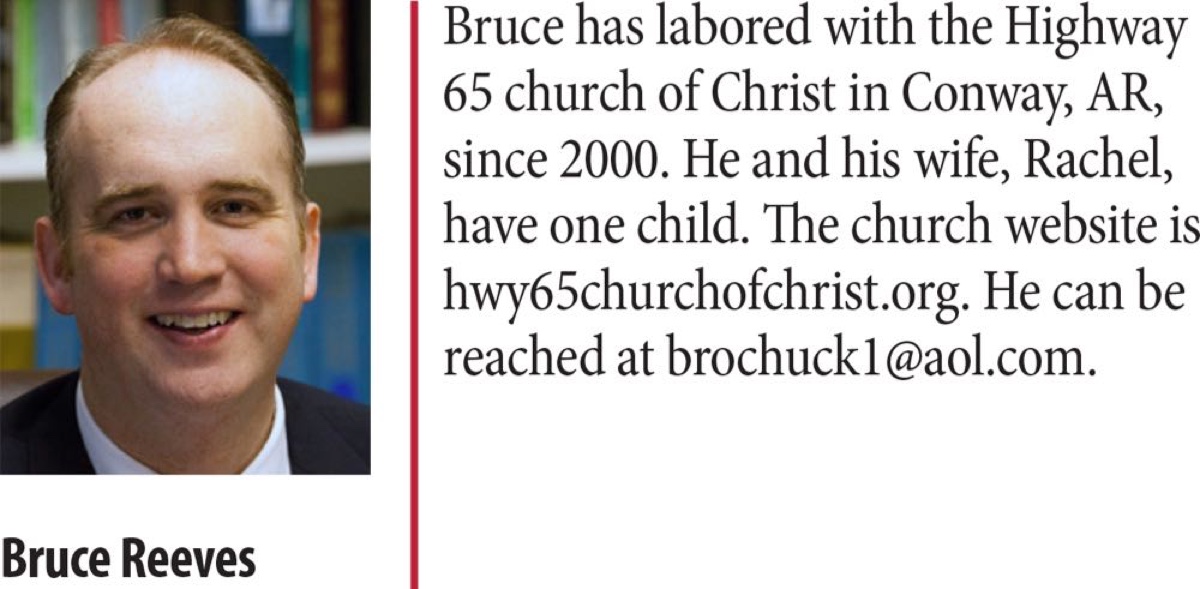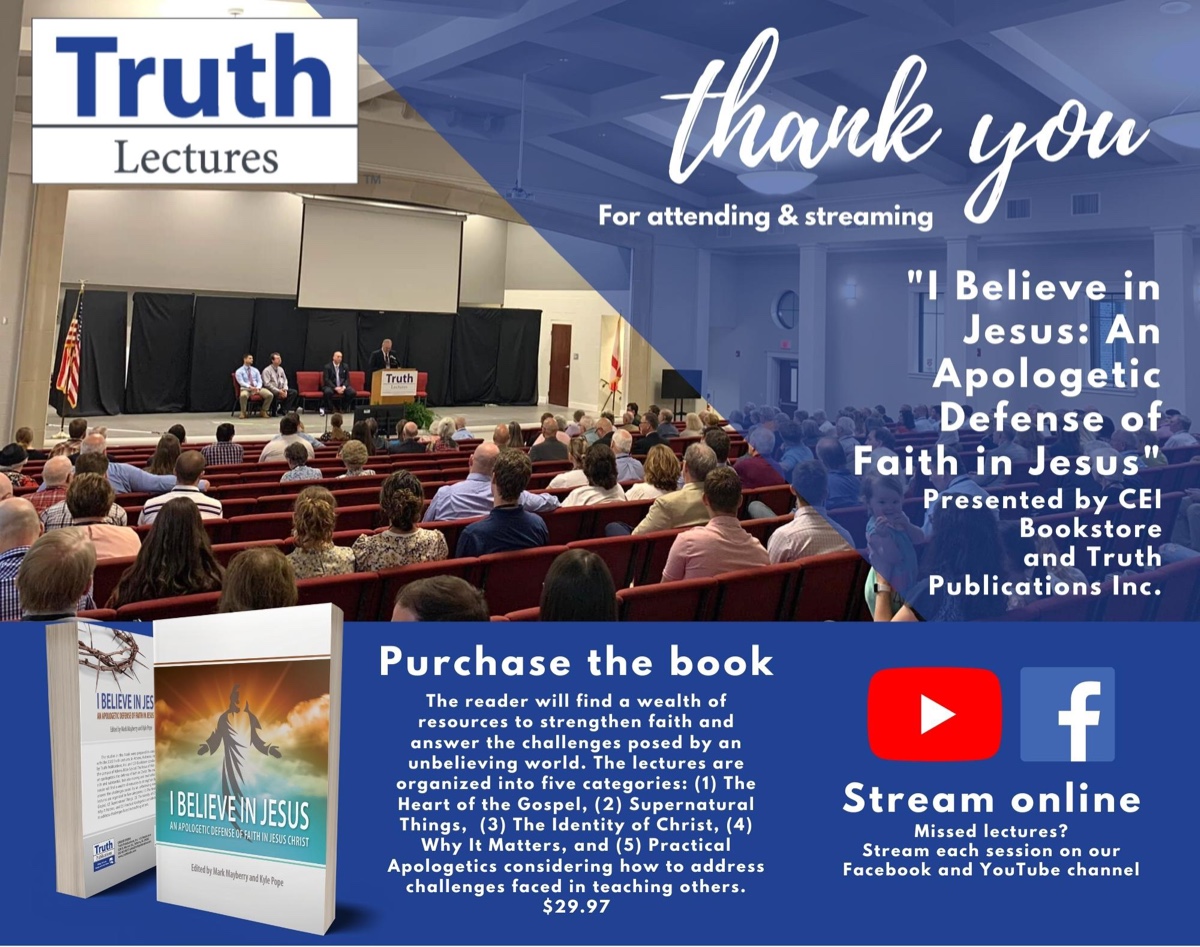By Bruce Reeves
Synopsis: We are not delivered to continue in a life conformed to this world and imprisoned to the flesh; rather, we are delivered from sin into a transformed, restored, and blessed life in Christ!
God’s grace has the power to deliver us from the reign of sin and transform us into Christ’s image (Rom. 5:6-8, 12-21; 6:3-4; 12:1-2; 2 Cor. 3:18; Eph. 4:22-24; 2 Pet. 1:4). In the larger context of the Roman epistle, chapters 6-8 emphasize the unifying and redeeming call of the message of the cross (Rom. 1:16-17). Unfortunately, proponents of both Classic Calvinism and the softened versions of neo-Calvinism frequently misuse this context. It is important for us to realize that there are variations and shades of Calvinism that are as, if not more, dangerous because the teaching is less apparent to some listeners. However, both classic and moderate forms of Reformed Theology focus on the depraved inability of humanity to obey God and promote unbiblical notions of grace and justification.
In our last article, we considered the doctrine of total inherent depravity. One might ask, “What would a softer version of that teaching look like?” The Calvinist’s aim in arguing for total depravity is to affirm the inability of man to believe and resist the temptation to sin (John 3:16; 1 Cor. 10:13; 1 John 2:1). Upon establishing the total depravity of man, those who have adopted Calvinistic thinking then argue for an irresistible, direct operation of the Holy Spirit on both the sinner and the saint. Having drawn this conclusion, he begins to assert the impossibility of apostasy and other false teachings. Historically, some neo-Calvinists have rejected the inheritance of a sin-nature but have argued for an acquired human inability to resist the temptation to sin. With the Classic Calvinist, the unregenerated person is inherently and totally depraved and endures this condition until death. The neo-Calvinist believes that all are partially disabled through acquired depravity which they have until death, and are, therefore, not able to resist the temptation to sin without a direct operation of the Spirit. In a sense, both approaches end up in the same place—inability. Yet, a balanced treatment of biblical teaching exposes these notions as lacking and encourages us to live in the power of God’s grace (Titus 2:11-15). We will consider a section of Scripture that Calvinists of various kinds have employed to argue for either total or partial depravity. The answer is always in the context.
Romans chapters 6 and 8 provide the contextual framework for chapter 7. If we read this context comprehensively, Paul’s line of argumentation comes into clear focus. He writes, “What shall we say then? Are we to continue in sin so that grace may increase? May it never be! How shall we who died to sin still live in it?” (Rom. 6:1-2). Paul affirms that the Christian “died to sin” in his conversion to Christ in baptism (Rom. 6:3; cf. Gal. 2:20; 6:14). The believer now “walks in newness of life” and having been “crucified with Christ” is no longer a slave of sin (Rom. 6:4, 6). We read that those living by faith are “freed from sin” and its “dominion” (Rom. 6:9-14). The apostle makes it clear that we cannot simultaneously be servants of righteousness and unrighteousness, which is a crucial point in understanding the next chapter! Those who are “freed from sin are slaves of righteousness” (Rom. 6:18), whereas those who are “slaves of sin are free concerning righteousness” (Rom. 6:20). Paul makes the same argument in Romans 8:5-15. One cannot simultaneously have a “fleshly mind” and “spiritual mind” because the “mind set on the flesh is hostile to God” and “those who are in the flesh cannot please God” (Rom. 8:7-8). Those “living according to the flesh will die,” and those who live according to the Spirit will dwell in peace with God (Rom. 8:5-8). “Flesh,” in this sense, is not part of the person, nor even exactly an impulse or “nature” within a person, but a power-sphere or principle in which one lives. Our allegiance is not to the flesh but to the Spirit and His gospel (Rom. 8:12). The translation of “flesh” as “sinful nature” in the NIV is misleading at best, and at worst, revealing of Calvinistic prejudice. The main point of this text is not human nature or anthropology, but the Mosaic Law, in contrast with the gospel of grace.
Paul is not describing his difficulties as a Christian; instead, he is describing the condition of one seeking justification by the Law outside of Christ. It’s not that believers never struggle, but the contrast between Romans 6 and 7 is stark and vividly describes defeat. The person in Romans 7 is spiritually dead, enslaved, and lost, whereas the faithful Christian victoriously engages in warfare with the wicked one (Eph. 6:10-17). We are battling against sin, not living under its reign (1 John 2:1-2; 3:9). This chapter cannot be describing the faithful child of God who has been freed from spiritual death and the bondage of sin by the grace of God. For Paul writes, “Therefore there is now no condemnation for those who are in Christ Jesus” (Rom. 8:1).
This entire context addresses the man who trusted in the Law but was hindered by sin from carrying out the aim of the Law, i.e., righteousness (Rom. 8:1-4). Once he sinned against the Law, keeping more law would not save him (Gal. 3:10-13). On the other hand, the grace of Christ offers spiritual freedom: “But now we have been released from the Law, having died to that by which we were bound, so that we serve in the newness of the Spirit and not in the oldness of the letter” (Rom. 7:6). Although the Law was good, holy, and righteous, sin used it to bring death to the sinner (Rom. 7:7-13). Before his knowledge of the Law, Paul was spiritually “alive,” but when the Law convicted him of transgression, he “died” (Rom. 7:7-10). The purpose of the Law was to reveal and expose sin in order to point humanity to the gospel of Christ (Rom. 3:20; 7:13; Gal. 3:19, 26-28). Yet, the Law which revealed sin was impotent to break the power of sin’s destruction (Rom. 8:3; Gal. 3:21).
Paul dramatically describes the frustration of the sinner seeking to be right with God under the Law. Some have argued that, because Paul speaks in the first person, he must be referring to the life of the Christian. However, speaking in the first person, present tense was not uncommon as a literary or rhetorical device to make a more significant point. It should be noted that the man in chapter 7 is not merely struggling with sin; he is dominated and defeated by sin. We might also ask why Paul would be describing the Christian’s effort to keep the Law, when he is no longer under the Law (Heb. 8:6-13)? The person described in Romans 7 is “in the flesh” and is condemned by “sin” (Rom. 7:5, 17, 18, 20) rather than having the spiritual mind and enjoying the freedom of forgiveness (Rom. 8:1-2, 5-6). He is a “wretched man” enslaved to “death,” but the believer has been “freed from the law of sin and death” through the gospel (Rom. 7:24; 8:1-2). He is “dead” (Rom. 7:8-11), “carnal,” and “sold into the bondage of sin” (Rom. 7:14). This does not sound like someone freed from sin by God’s grace.
When first reading Romans 7:15-22, we may feel confused and frustrated. That may mean we are getting the point regarding a person attempting to please God while rejecting Christ. The person who had sinned against the Law was condemned. As much as he may have wanted to be right with God, he could not accomplish it through the Law (Rom. 7:15). His mind consented to the righteousness of the requirements of the Law, but the fact was that he had violated God’s commandments. If I get pulled over for speeding, and when the police officer comes to my window, I ask him if he would let me drive the same road again without speeding, he might look at me funny.
Once someone had broken the Law, only the grace of Christ could offer hope. The man in this text wanted to be pleasing to God but could not remedy his spiritual condition in and of himself under the Law. It was not that he couldn’t go a moment without sinning. Yet, when he attempted to serve God, the realization of his guilt was always with him. There was nothing in him that could lead to a right relationship with God without the forgiveness of Christ (Rom. 7:16-21). No matter how much good he did, the Law condemned him for his sin. In his mind, he appreciated the teaching of the Law, but he knew that the principle of sin was reigning in His life. He needed Jesus Christ! “Therefore, there is now no condemnation for those who are in Christ Jesus” (Rom. 8:1). Sin offers only enslavement, bondage, guilt, shame, failure, and death. In contrast, the gospel offers us freedom, liberty, forgiveness, purity, victory, and life. We are not delivered to continue in a life conformed to this world and imprisoned by the flesh. We are delivered from sin into a transformed, restored, and blessed life in Christ!
While this context is not arguing that we have been born with, or acquired an irresistible propensity to sin, it is encouraging us to see how desperately lost we would be without Jesus Christ. Through God’s grace, we have been “washed,” “sanctified,” and “justified” (1 Cor. 6:11). When we sin as Christians, we can confidently and boldly come into the throne room of our faithful High priest and plead for mercy in our time of need (Heb. 4:14-16). What should we do when we sin? John writes, “But if we walk in the light as He Himself is in the light, we have fellowship with one another, and the blood of Jesus His Son cleanses us from all sin” (1 John 1:7). This is not an automatic and unconditional cleansing, for we read, “If we confess our sins, He is faithful and righteous to forgive us our sins and to cleanse us from all unrighteousness” (1 John 1:9).
God erases the stain of sin from our souls as we continue to repent, confess, and pray. The struggling Christian can be encouraged to continue to come to the Lord for mercy with confidence in His provisions. If we keep coming to God in humble faith, praying, and confessing our sins, then God’s precious promise is that we will be forgiven of those wrongs, and they will be held against us no more. What an amazing thought it is that Christ is our Advocate, who pleads our case in the court of heaven, as our Mediator and Intercessor before God’s presence (1 John 2:1-2; cf. 1 Tim. 2:5; Heb. 7:25). His sacrifice is eternally sufficient and saving (Heb. 10:10-14). The Hebrew writer encourages us to live in His assurance, “Therefore He is able also to save forever those who draw near to God through Him, since He always lives to make intercession for them” (Heb. 7:25). Yes, God’s grace is indeed powerful and life changing. Come to the Lamb of God today!




